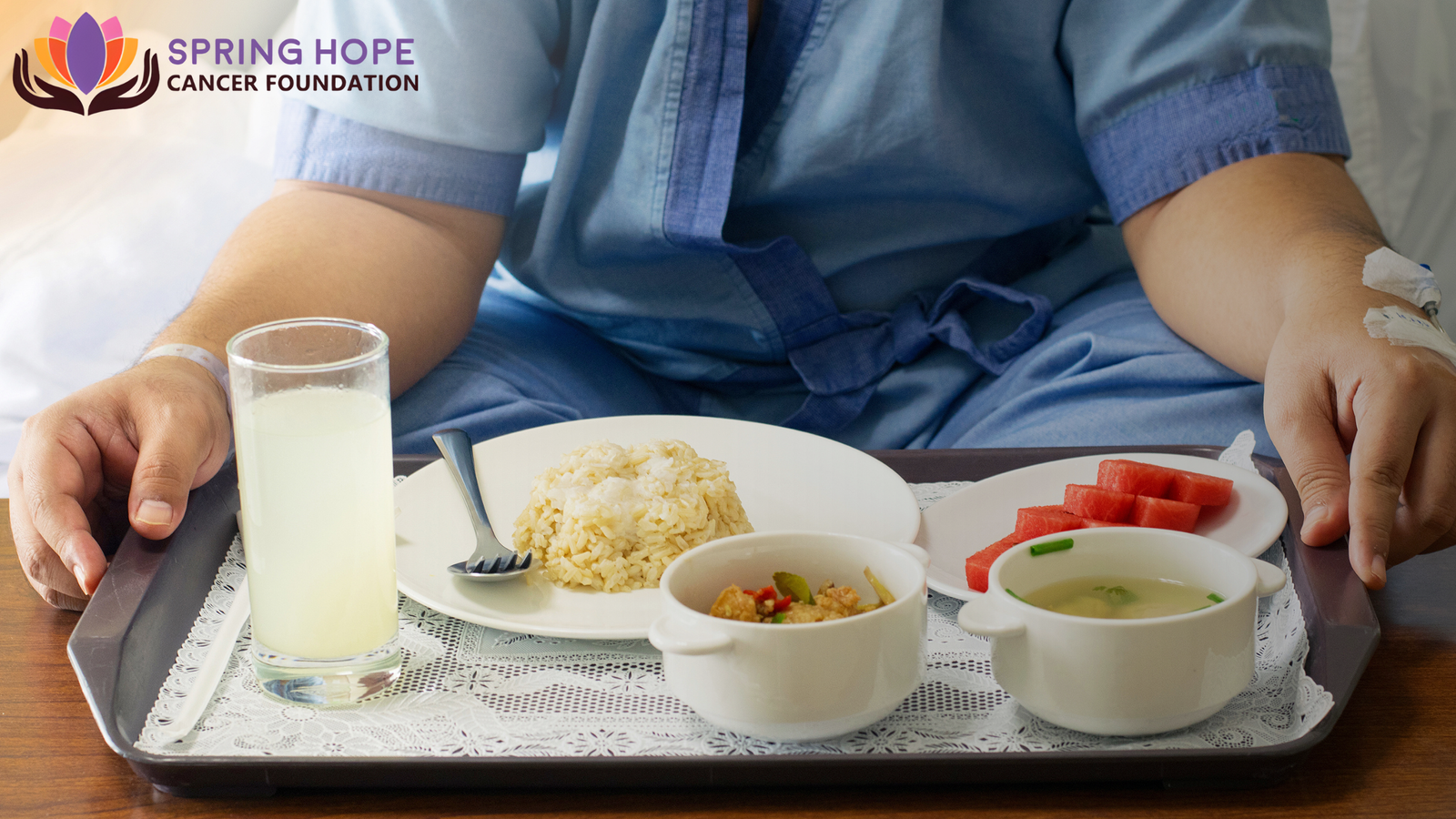
Most cancer remedies can be a tough adventure, and keeping the right nutrition is important for supporting the body throughout this time. A well-balanced diet can help manage side effects, maintain strength, and improve overall well-being. Here are some important nutrient guidelines to consider for nutritional support for cancer patients during treatment.
1. Focus on Nutrient-Dense Foods
Fruits and Vegetables: Aim for at least 8 servings of a variety of fruits and vegetables each day. These foods are rich in nutrients, minerals, and antioxidants that can help support the immune system.
Whole Grains: Incorporate whole grains such as brown rice, quinoa, and whole wheat bread. They provide essential fibre and energy, which can be useful during treatment, as they maintain energy and digestive health.
Lean Proteins: Include sources of lean protein like chicken, turkey, fish, eggs, and plant-based proteins such as beans, lentils, and tofu. Protein is essential for recovery and maintaining muscle mass, which is an important aspect of nutritional support for cancer patients.
2. Stay Hydrated
Fluid Intake: Drinking plenty of fluids is a key part of nutrition. Water, herbal teas, and broths are great options. Aim for at least 8-10 cups of fluids daily, adjusting based on the individual's needs and treatment side effects.
Electrolyte Balance: Consider liquids that replenish electrolytes, especially if experiencing nausea or vomiting. Coconut water and electrolyte-infused drinks may be beneficial and helpful.
3. Manage Side Effects with Food Choices
Nausea and Vomiting: If experiencing nausea, opt for bland foods like crackers, toast, or rice. Ginger tea or ginger candies can also help soothe the stomach, providing support to people who may struggle with appetite changes.
Flavour Changes: If food tastes different, try using herbs and spices to enhance flavour. Experiment with different cooking methods, such as grilling or roasting, to discover what is most palatable and offers effective nutritional support for cancer patients.
Mouth Sores: Soft, moist foods may be easier to eat. Consider smoothies, yogurt, and soups. Avoid spicy or acidic foods that could irritate the mouth.
4. Small, Frequent Meals
Eating Schedule: Instead of three large meals, aim for 5 to 6 smaller meals throughout the day. This can help manage appetite and energy levels and provide steady nutritional support for cancer patients without overwhelming the digestive system.
Snacks: Keep healthy snacks on hand, such as nuts, yogurt, cheese, and fruit. These can provide additional energy and nutrients without overwhelming the digestive system.
5. Consider Special Nutritional Needs
Consult a Dietitian: Working with a registered dietitian specializing in oncology nutrition can provide customized nutritional support for cancer patients by addressing specific dietary concerns and creating personalized meal plans.
Dietary Supplements: Discuss the need for dietary supplements with a healthcare provider. Sometimes, additional vitamins or protein powders may be necessary to meet nutritional needs.
6. Emphasize Healthy Fats
Healthy Fats: Include sources of healthy fats such as avocados, olive oil, nuts, and seeds. These can provide extra energy and support overall health.
Omega-3 Fatty Acids: Foods rich in omega-3s, like fatty fish (salmon, mackerel) and flaxseeds, may also help reduce inflammation and support heart health.
7. Limit Processed Foods and Sugars
Reduce Processed Foods: Try to limit the intake of processed foods high in sugar, salt, and unhealthy fats. These can contribute to inflammation and may not provide the nutrients needed for healing, highlighting the importance on whole, nutrient-dense foods.
Sugar Consumption: While it’s important to enjoy food, be mindful of excessive sugar intake, which can lead to weight gain and other health issues.
8. Listen to Your Body
Intuitive Eating: Pay attention to hunger cues and eat what feels good. If certain foods are unappealing, don’t force them. Focus on what you can tolerate and enjoy, aligning with nutritional support for cancer patients tailored to individual preferences and comfort.
Rest and Recovery: Allow your body to rest and recover. Nutrition is just one part of the healing process, and self-care is equally important.
9. Social Support and Meal Preparation
Involve Family and Friends: Encourage family and friends to help with meal preparation. This can provide emotional support and make mealtime more enjoyable.
Meal Planning: Consider batch cooking and freezing meals for days when energy levels are low. Having healthy options readily available can ease the stress of cooking, supporting nutritional support for cancer patients during challenging days.
10. Monitor Weight and Nutritional Status
Regular Check-Ins: Keep track of weight and any changes in appetite or eating behaviour. Regular check-ins with healthcare providers can help address any nutritional concerns early.
Adjust as Needed: Be flexible with food choices and adjust based on treatment side effects and personal preferences. Nutritional needs may change throughout the treatment process.
Final Thoughts
Navigating nutrition during cancer treatments can seem overwhelming, but it is a crucial part of the healing process. With the right focus on nutrition, including nutrient-dense foods, staying hydrated, managing side effects, and seeking guidance, patients can significantly improve their quality of life and support their bodies through treatment.
Remember that everyone’s journey is unique; what works for one person may not work for another. It’s important to listen to your body, consult healthcare professionals, and make choices that feel right for you. With the right approach to nutritional support for cancer patients, individuals can empower themselves on their journey to recovery, fostering resilience and hope during this challenging time.
Your donations are tax exempted under
80G of the Indian Income Tax Act.
Your donation transactions are
completely safe and secure.
Newsletter
© Copyrights 2026 Springhopecancerfoundation.com. All rights reserved.